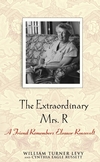 Here is some additional sage advice I've been given over the years. I find that as I try to live life and remember everything I'm supposed to do, pithy phrases and quotations stick well and are easy to recall when necessary:
Here is some additional sage advice I've been given over the years. I find that as I try to live life and remember everything I'm supposed to do, pithy phrases and quotations stick well and are easy to recall when necessary:1. Dress for the job you want, not the job you have.
2. When all else fails, take a deep, cleansing breath.
3. Always work hard, no matter what the job. Nothing gives you a better reference than a good work ethic.
4. If you treat a person like they are the person they ought to be, they will eventually become a person who deserves to be treated that way.
5. People who say it cannot be done should not interrupt those who are doing it.
6. You can have everything in life you want if you'll just help enough other people to get what they want.
7. In marriage, give 100 percent. If you give 100 percent and your spouse gives 100 percent, you'll have a good one. If you both only give 50 percent, it won't be enough to last.
8. Regret for the things we did can be tempered by time; it is regret for the things we did not do that is inconsolable.
9. True victory is not about finishing first; it is about finishing regardless of how many times you fall.
10. There is no failure except in no longer trying.
11. If you want children to keep their feet on the ground, put some responsibility on their shoulders.
12. Watch a sunrise every now and again. It is good for your soul.
13. Remember people's birthdays.
14. Have a firm handshake.
15. Write thank you notes.
16. When someone is relating an important event that's happened to them, don't try to top them with a story of your own. Let them have the stage.
17. Let your children overhear you saying complimentary things about them to other adults.
18. Smile when you answer the phone.
2. When all else fails, take a deep, cleansing breath.
3. Always work hard, no matter what the job. Nothing gives you a better reference than a good work ethic.
4. If you treat a person like they are the person they ought to be, they will eventually become a person who deserves to be treated that way.
5. People who say it cannot be done should not interrupt those who are doing it.
6. You can have everything in life you want if you'll just help enough other people to get what they want.
7. In marriage, give 100 percent. If you give 100 percent and your spouse gives 100 percent, you'll have a good one. If you both only give 50 percent, it won't be enough to last.
8. Regret for the things we did can be tempered by time; it is regret for the things we did not do that is inconsolable.
9. True victory is not about finishing first; it is about finishing regardless of how many times you fall.
10. There is no failure except in no longer trying.
11. If you want children to keep their feet on the ground, put some responsibility on their shoulders.
12. Watch a sunrise every now and again. It is good for your soul.
13. Remember people's birthdays.
14. Have a firm handshake.
15. Write thank you notes.
16. When someone is relating an important event that's happened to them, don't try to top them with a story of your own. Let them have the stage.
17. Let your children overhear you saying complimentary things about them to other adults.
18. Smile when you answer the phone.






